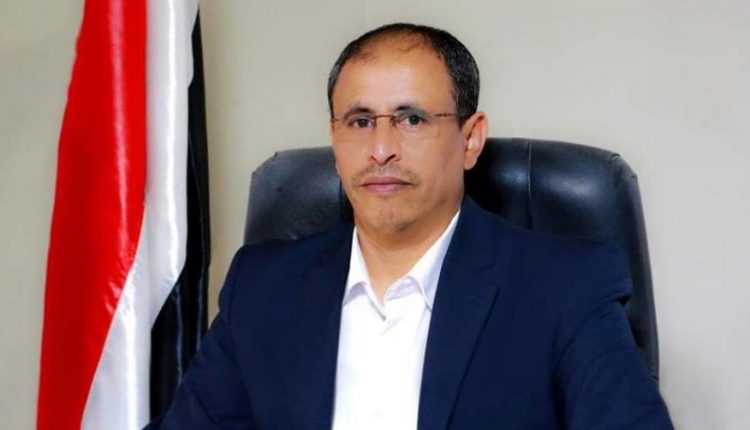Information Minister: Yemeni People Will not Die Starving Due US-Saudi-Emirati Siege
Minister of Information Daifullah Al-Shami affirmed that the Yemeni people have given a clear message that they will not die of starvation and siege, and that they will move to confront the aggressor who is trying to kill them with siege and bombing.
He explained that the great mass rally yesterday confirmed the people’s support for their leadership, and thwarted the enemy’s attempt to show that our people are resentful of the Sana’a government, noting that the siege comes as a result of the inability of the US-Saudi aggression to achieve any military victory.
He noted that the Yemeni people are suffering as a result of the fuel ships not reaching the port of Hodeidah despite obtaining UN permits. “The UN has ignored what is happening in Yemen of killing, siege and starvation, on the other hand, when the situation of US-Saudi aggression worsens, and when our forces achieve field victories or strikes in the depth of the enemy, the UN moves to conduct rounds and meetings” Al-Shami said.
He added that the Sana’a leadership does not rely on the United Nations or its political steps, as we are aware that they are being run with Gulf money and American decision.
He continued: “If the United Nations and its organizations were able to do justice to anyone, they would have restored the Palestinian people’s rights that were stolen decades ago.”
Saudi Arabia and the UAE, backed by the United States and regional allies, launched the war on Yemen in March 2015, with the goal of bringing the government of former Yemeni president Abd Rabbuh Mansour Hadi back to power.
The war has left hundreds of thousands of Yemenis dead and displaced millions more. It has also destroyed Yemen’s infrastructure and spread famine and infectious diseases there.
As part of its economic war, the US-Saudi aggression worked to drain about 97% of the Yemeni state’s resources, either by controlling them militarily such as oil and gas sources, freezing Yemeni foreign assets and transferring them to mercenaries and financing coalition operations, or imposing siege on the vital port of Hodeidah and the most important port after Aden, which is still in the grip of Sana’a and out of control of the aggression.
The coalition of aggression continues to piracy, detaining fuel ships, and preventing them from entering the port of Hodeidah, despite obtaining permits from UN, which aggravates the humanitarian catastrophe due to the suspension of many vital service sectors, especially hospitals, electricity, water, cargo trucks, as well as waste trucks.

